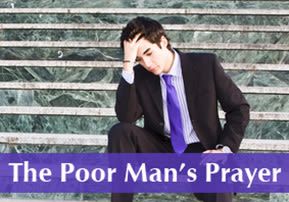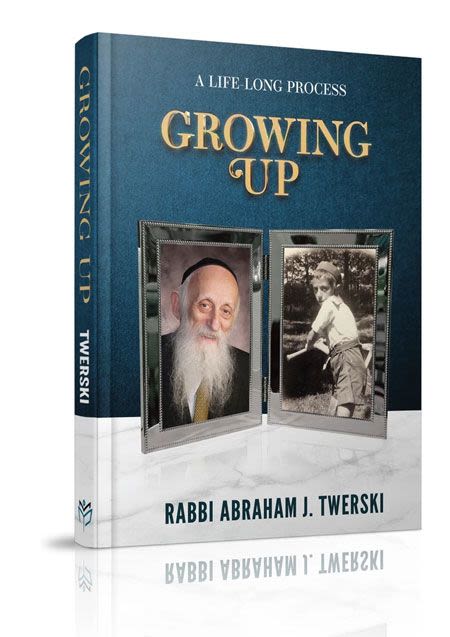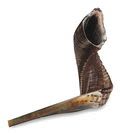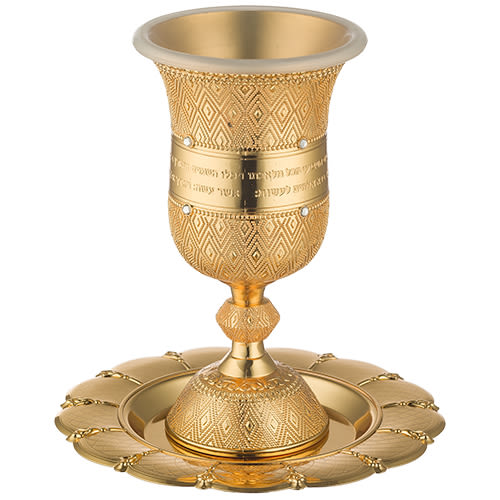
The Poor Man’s Prayer
It doesn’t matter than Morris the Cabbie isn’t a great scholar like Moses or a tzaddik like King David; Hashem’s mercy is best revealed by way of the poor man...

Translated by Rabbi Lazer Brody
In Forest Fields, Part 28
The Zohar in its elaboration of Psalm 102 says that the poor man’s prayer, calling out to Hashem with a broken heart from the tribulations of poverty, takes precedent even before the prayers of Moses and King David. The Zohar in Parshat Balak states:
 “Rebbe Abba opened, ‘A prayer of the poor man when he swoons…’ (Psalm 102). The word ‘prayer’ talked about three people – Moses, David, and the poor man… Which of the three prayers is most important? The poor man’s prayer! It takes precedence over Moses’ and David’s prayer, and is accepted before all other prayers in the world. Why? The poor man has a broken heart. Hashem is close to anyone with a broken heart (Psalm 34)… The poor man’s prayers open the windows of the firmament… The Holy One blessed be He says: ‘All other prayers shall move aside and the poor man’s prayer shall enter unto Me first. The Heavenly Tribunal shall not judge whether the poor man’s prayer is worthy or not. The poor man’s supplications and I shall be alone!’ Then, all the Heavenly Legions ask, ‘Who is receiving The Holy One blessed be He’s individual attention?’ An answer came down from above, ‘He is in solitude with His cherished vessels – the brokenhearted poor.’”
“Rebbe Abba opened, ‘A prayer of the poor man when he swoons…’ (Psalm 102). The word ‘prayer’ talked about three people – Moses, David, and the poor man… Which of the three prayers is most important? The poor man’s prayer! It takes precedence over Moses’ and David’s prayer, and is accepted before all other prayers in the world. Why? The poor man has a broken heart. Hashem is close to anyone with a broken heart (Psalm 34)… The poor man’s prayers open the windows of the firmament… The Holy One blessed be He says: ‘All other prayers shall move aside and the poor man’s prayer shall enter unto Me first. The Heavenly Tribunal shall not judge whether the poor man’s prayer is worthy or not. The poor man’s supplications and I shall be alone!’ Then, all the Heavenly Legions ask, ‘Who is receiving The Holy One blessed be He’s individual attention?’ An answer came down from above, ‘He is in solitude with His cherished vessels – the brokenhearted poor.’”“The poor man has no greater yearning than to pour out his tears before The Holy One blessed be He; The Holy One blessed be He has no greater yearning than to receive those tears that are poured out before Him… King David saw how the windows of the firmament were open to the prayers of the poor man, so he took off his royal garb and sat on the floor like a poor man, and prayed his prayer.”
“Rabbi Elazar says… every person should lower himself and pray like a poor person, so that his prayers will ascend with those of the other poor people. The Heavenly sentries don’t easily allow other prayers to enter the upper thresholds like they allow the prayers of the poor people. The prayers of a poor person with a broken heart and a humble spirit need no permission to enter…” (Zohar, Balak, 195).
Moses, David, and the poor man
Now that we’ve seen the above mentioned passage from the Zohar, let’s take a closer look. Moses, as the greatest of prophets, prayed on the highest level of spiritual awareness that a mortal ever attained. King David, Hashem’s anointed, attained a complete level of self-nullification that enabled him to cling completely to Hashem. Now, we have the prayer of a poor man or women crying to Hashem with a broken heart.
Which prayer would we say is most important? Which would we think Hashem would accept first? The prayer of Moses? King David’s prayer? No, the prayer of the brokenhearted pauper is heard before the prayers of history’s greatest prophet, before the prayers of the king of Israel, and before the prayers of the entire world! This is an awesome concept, and if it wasn’t written outright in the Zohar, we couldn’t utter such a notion.
Imagine, Moses, King David, and a plain and simple poor man are standing in prayer. Moses is undoubtedly praying for the entire world. King David is reciting magnificent praises of Hashem’s name. Poor Morris Levy from Brooklyn is complaining to Hashem that his meager income as a cab driver is barely enough for food and rent, but not enough to pay for the tuition of five children that must have Torah educations. If that’s not enough, he doesn’t have a single cent to make a wedding for his oldest daughter; to add insult to injury, he had two flat tires today, and they’re radials, slit and beyond repair! If he doesn’t come up with a fast $300, he won’t be able to replace them, and then what? Just this morning, he paid the electric bill, and all he has is $65 in his pocket. Morris, standing on the side of the road by Ocean Parkway looks at the sky with tear-filled eyes and pleads with a choked voice, “Hashem, I can’t stand this any longer? What do I do? I’ve got no one to help me! There’s nothing in the bank and my credit’s exhausted. What am I asking for, a palace, a Bermuda vacation? Are two radial tires and tuition so my kids can learn Torah too much to ask?” Morris breaks down and sobs uncontrollably.
Hashem gently pushes the prayers of Moses, David and the rest of the world aside. The tears of Morris the Cabbie have split the firmaments and have reached the Heavenly Throne unchallenged and unobstructed.
How do the prayers of Morris the poor Cabbie from Brooklyn take precedence over those of Moses and King David? So what if Morris has a broken heart? The Torah testifies that Moses was the humblest of any man that ever walked the face of the earth. Humble people also have broken hearts. And what about King David? The Psalms testify that he too was extremely humble and brokenhearted despite the fact that he was King of Israel!
The Zohar answers that the poor person has no greater solace than being able to pour out his heart to Hashem. Hashem therefore has no greater desire than accepting the heartfelt and teary-eyed supplications of the poor person.
Revelation of mercy
We now see a clear manifestation of what Rebbe Nachman wrote (see Likutei Moharan I:64, which we referred to at the beginning of this chapter), namely, that the purpose of creation was to reveal Hashem’s mercy. Since the poor man has no one to turn to other than Hashem and so badly needs Hashem’s mercy, his prayers become first in line!
It doesn’t matter than Morris the Cabbie isn’t a great scholar like Moses or a tzaddik like King David. The Zohar teaches us that Hashem’s mercy is best revealed by way of the poor man, for no one but Hashem can help him. Even though Moses and David are perfectly righteous, deserving, and amazingly humble, they’re not really poor people. Morris is – he needs Hashem’s help right now. Hashem personally attends to the needs of the poor person and listens to his prayers.
To be continued.













Tell us what you think!
Thank you for your comment!
It will be published after approval by the Editor.